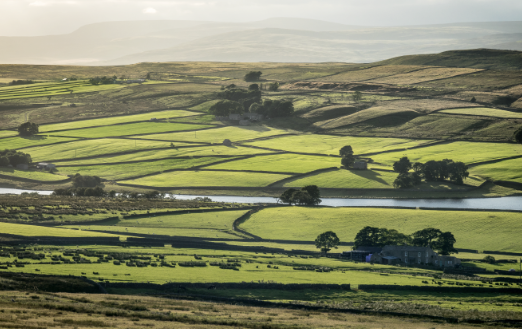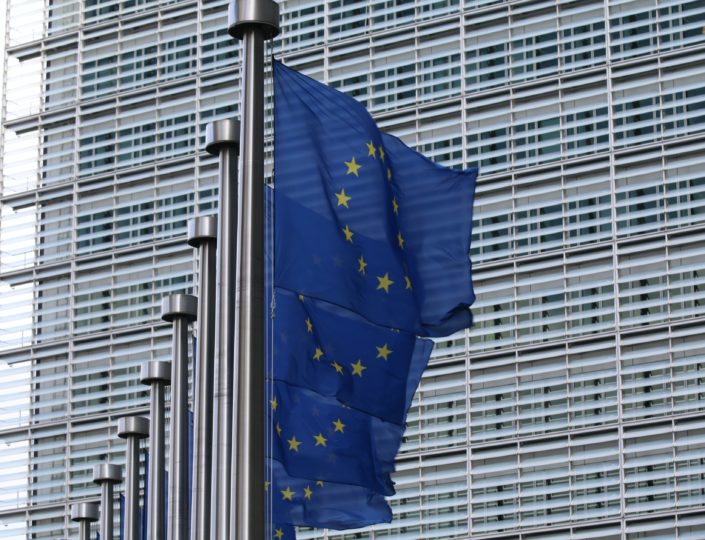Formal Complaint submitted to EU Commission on Ireland’s Non-compliance with EU Environmental Laws: National Energy and Climate Plan

Last month, the Environmental Justice Network Ireland (EJNI) submitted a formal complaint to the European Commission, alleging Ireland’s National Energy and Climate Plan breaches EU legal obligations in both its content and drafting process.
Joy-Tendai Kangare BL outlines the role of NECPs, the substance of the EJNI complaint submitted to EU Commission and what the future holds for Ireland and other EU member states.
A complaint amid a history of environmental non-compliance
On the 7th of November 2024, a formal complaint was submitted to the European Commission that Ireland had failed to comply with EU obligations in the content and process of drawing up its National Energy and Climate Plan (NECP). The Environmental Justice Network Ireland, supported by numerous social and environmental organisations, alleged significant non-compliance with EU law. They charge Ireland with drawing up an NECP with manifest inadequacies manifest in both content and procedural aspects, contravening several articles of the Governance Regulation (EU 2018/1999) and other pertinent directives.
Environmental issues have become a global concern, and Ireland’s non-compliance has not gone unnoticed. In Case C 494/01 Commission v Ireland in 2005, the CJEU held that Ireland had failed to comply with its legal obligations in relation to the waste management directive. Ireland was also sanctioned in Case C-215/06 regarding failures which lead to a 2km landslide at Derrybrien Wind farm in October 2003, which the Commission called “environmentally devastating”. Most recently in Case C-444/21 of 29th June 2023 the CJEU held that by failing to designate special areas of conservation, conservation objectives and measures, Ireland had failed to fulfil its obligations under the Habitats Directive. In an unusually plain-speaking argument, the Commission said that Ireland had failed to specify ‘who does what, where and when’ and whether the measures taken are sufficient to address all key pressures and threats.”

What is the NECP, why is it important and is it another such failure?
The national energy and climate plans (NECPs) were introduced by the Regulation on the governance of the energy union and climate action (EU)2018/1999, agreed as part of the Clean Energy for all Europeans package which was adopted in 2019.
The national plans require each Member State to outline how it intends to fulfil its own portion of the EU targets to address the five dimensions of the energy union:
- decarbonisation
- energy efficiency
- energy security
- internal energy market
- research, innovation and competitiveness
This approach requires a coordination of purpose across all government departments, and it provides a level of planning that will ease public and private investment.
Under the governance regulation Member States had to submit their draft NECPs for the period 2021-2030 to the Commission by 31 December 2018. Following reviews and individual assessments by the Commission in the subsequent years, by 30 June 2023, Member States were due to submit their draft updated NECPs. To better develop and implement the plans, the Member States were required to consult citizens, businesses and regional authorities in the drafting and finalisation process. Then, Member States were required to submit their final updated NECPs by 30 June 2024, taking account of the Commission’s assessment and recommendations, and the results of domestic consultations.
What is the substance of the EJNI complaint?
While Ireland has submitted a NECP to the Commission, the Formal Complaint argues that Ireland’s NECP is not fit for purpose. It identifies critical failures, in both the content of the plan and the process for arriving at the plan.
First, in regard to content compliance, the complaint is that Ireland has not adequately addressed the requirements for phasing out fossil fuel subsidies, as mandated by Article 3(1) and relevant annexes of the Governance Regulation. The submission stated that Ireland’s updated NECP lacks sufficient policies and measures necessary to meet 2030 climate targets, including those specific to the Effort Sharing Regulation (ESR) and Land Use, Land Use Change, and Forestry (LULUCF).
Furthermore, the complaint states that Ireland has failed to address the socio-economic impacts of the transition, thereby potentially undermining human rights and gender equality and neglecting the assessment of energy poverty as required under Article 3(3)(d). EJNI argues that arising from the above, there are rights implications as non-compliance with climate and energy targets may infringe upon fundamental rights, including the right to life and the right to respect for private life, as articulated in the EU Charter of Fundamental Rights. Overall, the complaint is the Irelands failure contravenes the principle of a high level of environmental protection established in Article 191(2) TFEU.
Second, the complaint made to the Commission is there have been significant procedural failures in the manner of drawing up the plan, in particular lack of consultation, which also contravene EU law. It argues that Ireland has not provided adequate opportunities for public engagement, violating Article 10 of the Governance Regulation and Article 7 of the Aarhus Convention. It highlights the absence of a Strategic Environmental Assessment (SEA) report, staging that this further indicates a disregard for necessary environmental evaluations prior to submission. Interestingly, the EJNI complains about what it sees as failures to comply with North/South obligations, in particular, that, there has been insufficient regional cooperation concerning transboundary impacts, particularly with Northern Ireland, thus neglecting the obligations under the 1998 Good Friday Agreement.
The complaint is that collectively, these deficiencies not only jeopardise Ireland’s compliance with its EU obligations but also threaten the Union’s ability to meet its overarching climate commitments under the Paris Agreement.
The concerned organisations and individuals therefore urge the European Commission to take immediate legal action under Article 258 of the Treaty on the Functioning of the European Union to address these non-compliance issues.

The assessment and investigation process of a formal relevant complaint by the Commission
The Commission conducts an initial assessment to determine whether the complaint falls under its jurisdiction and whether it raises valid concerns regarding EU environmental legislation, once the complaint is deemed serious and substantiated, the Commission may initiate an investigation. This involves gathering evidence, consulting with member states, and examining the specifics of the case and may also coordinate with other bodies, such as the European Environment Agency or national authorities.
What is the Commission’s decision making process on infringement?
Following the detailed investigation process mentioned above, the Commission will decide on the appropriate course of action. This could include the following:
- Taking no further action if the complaint is found to be unfounded.
- Issuing recommendations or opinions to member states if there are concerns about compliance with EU law.
- Launching infringement proceedings against a member state if it is found to be in violation of EU environmental legislation.
Ireland could face this third option and the Commission may continue to monitor the situation to ensure compliance with EU law and may take further action if necessary.
What is the role of Ireland and other EU member states going forward?
Proper planning is critical to ensure collective progress towards achieving legally binding climate targets. Crucial is the identification of ‘who does what, where and when’ and whether the measures taken are sufficient to address all key pressures and threats.
The failures of proper NECP planning levelled at Ireland are serious. It will be interesting to see how the Commission will deal with this formal complaint. Will Ireland once again be in the dock on its failure in environmental and sustainability practices in Ireland?
The views expressed above are the author’s own and do not reflect the views of The Bar of Ireland.
